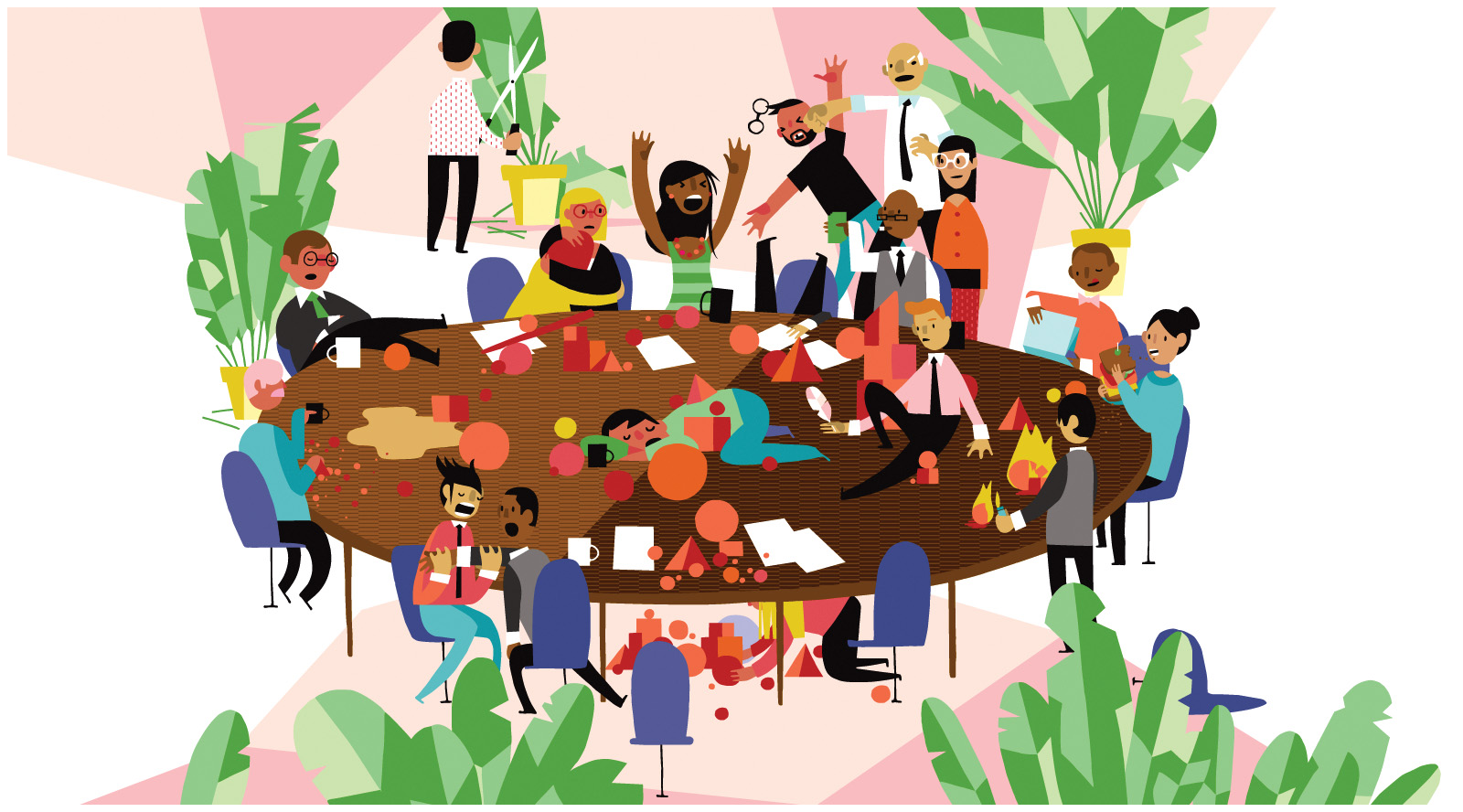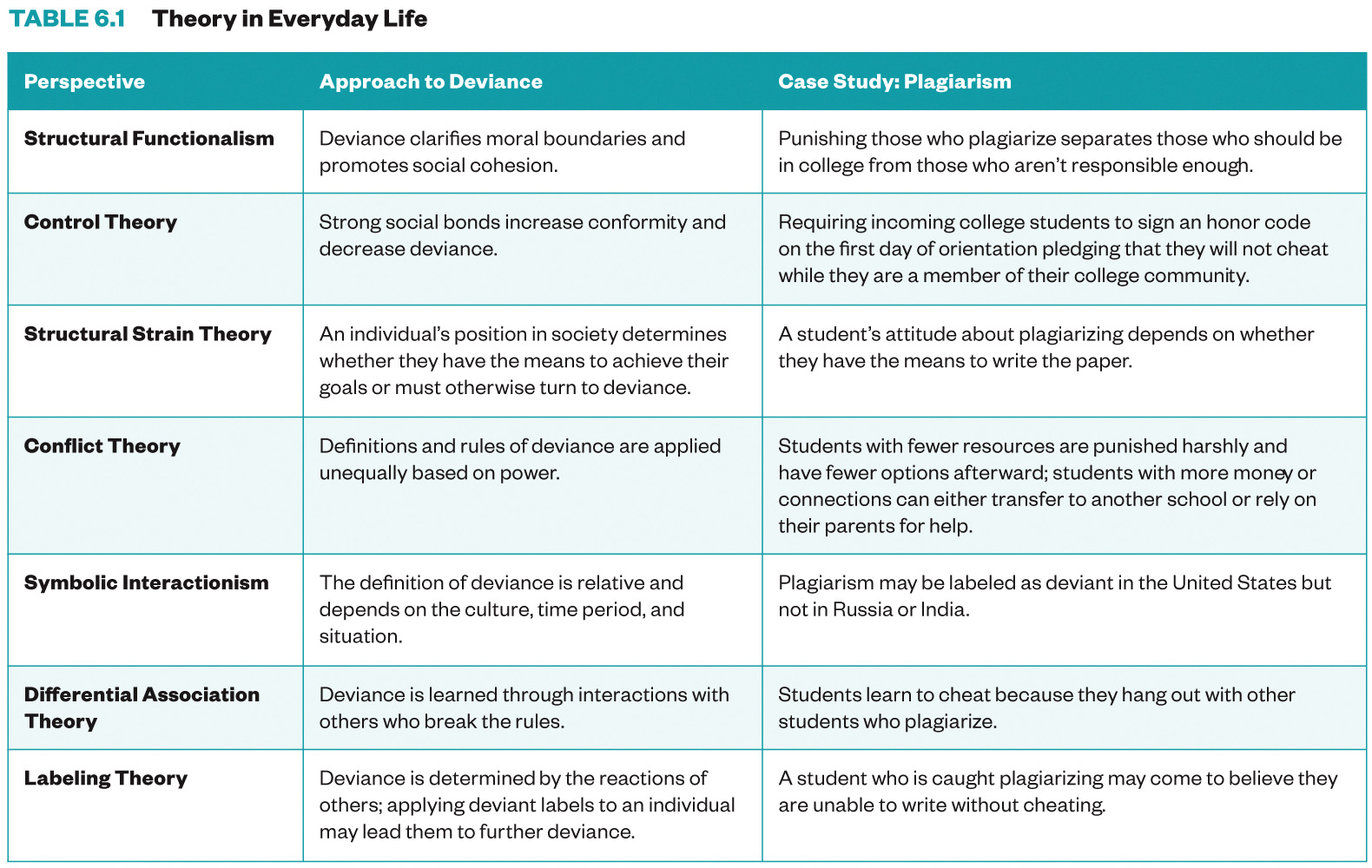
Deviance¶
This lesson introduces the sociology of deviance and crime. In sociology, deviance isn’t an insult. Deviance means being non-normative: different Sociologists pay particular attention to the socially constructed nature of deviance and conformity, emphasizing how definitions of deviance vary across cultures, history, and situations. This week, we will examine how the different theoretical perspectives approach deviance. Within sociology, crime is a particular type of deviance: It is the violation of a norm that has been codified into law, for which you could be arrested and imprisoned. A sociological view of crime includes analyzing patterns through the lens of different demographic groups’ power in society yields an interpretation of the data that differs from the mainstream understanding. The case study asks you to interpret findings from a study that looks at the relationship between imprisonment and being re-arrested.
Learning Objectives¶
By the end of this lesson, you will be able to:
Differentiate between competing theories of deviance.
Describe trends in crime and incarceration.
Evaluate the relationship between imprisonment and recidivism.
Deadlines¶
Be sure to hand these in before the deadline
InQuizitive ChapterSet 6 (Thursday at 9:30am)
Breaching application (Sunday at 10:00pm)
Crack: Cocaine, Corruption & Conspiracy reflection (Sunday at 10:00pm)
Discuss (Thursday during class):¶
Crack: Cocaine, Corruption & Conspiracy¶

In the early 1980s, the crack epidemic tore through America’s inner cities like a tsunami, ravaging all in its wake. Decades later, the destructive effects on people’s lives, families and communities are still deeply felt. Crack: Cocaine, Corruption & Conspiracy examines not only the personal devastation caused by the drug, but also the shadowy origins of the crisis and the resultant, ongoing marginalization of Black and Brown people trapped by the U.S. prison and healthcare systems. Official Description
We will use the documentary film Crack: Cocaine, Corruption & Conspiracy as an opportunity to explore how deviance is constructed and contested. We will watch it together during class.
Be sure to have the movie ready to go at the start of class.
Login to the course Slack by 9:30am and say hi to your group!
Questions¶
If you have any questions at all about what you are supposed to do on this assignment, please remember I am here to help. Reach out any time so I can support your success.
Post it in the Slack #questions channel!
Signup for virtual office hours!
Email me or your TA.
Lesson Keywords¶
deviance
Merton’s typology of deviance
social control theory
differential association theory
labeling theory
primary deviance
secondary deviance
tertiary deviance
stereotype threat
stereotype promise
stigma
passing
in-group orientation
deviance avowal
crime
criminology
uniform crime report
Criminal Justice System
retribution
deterence
rehabilitation
positive deviance



